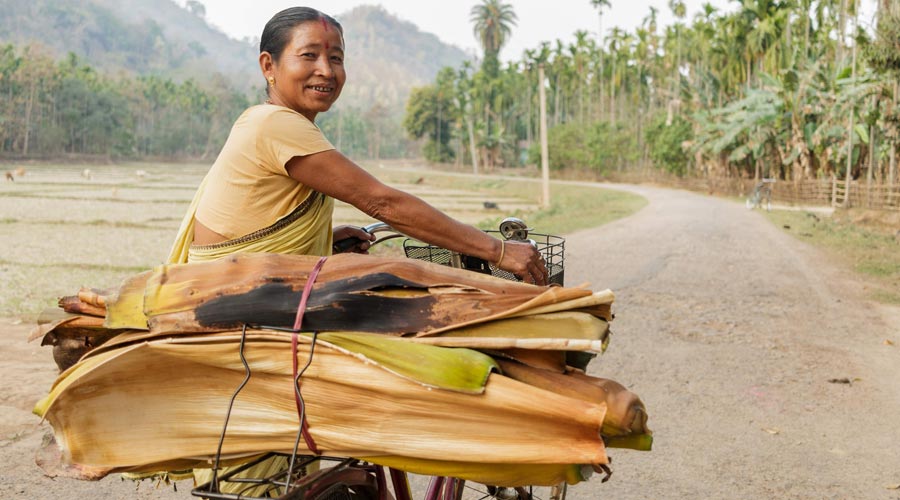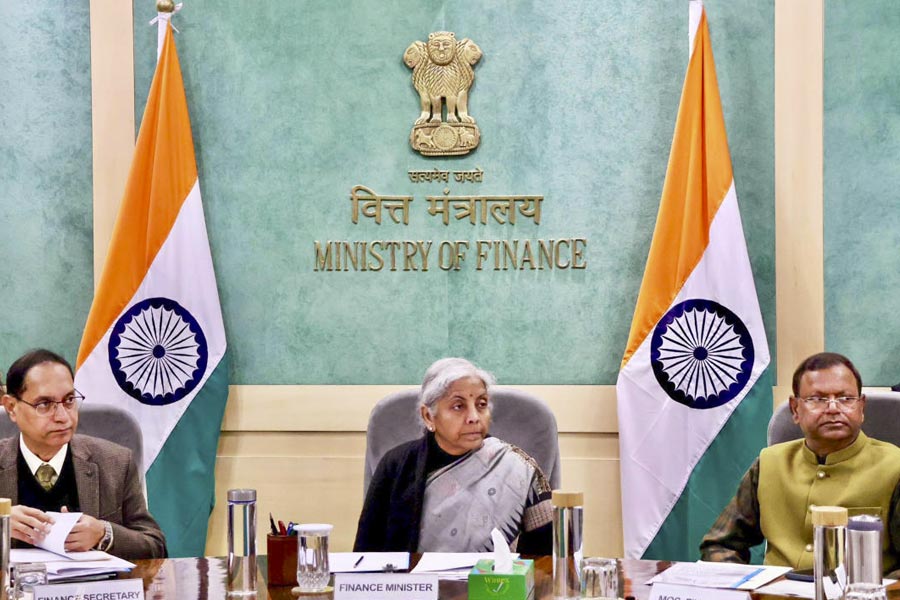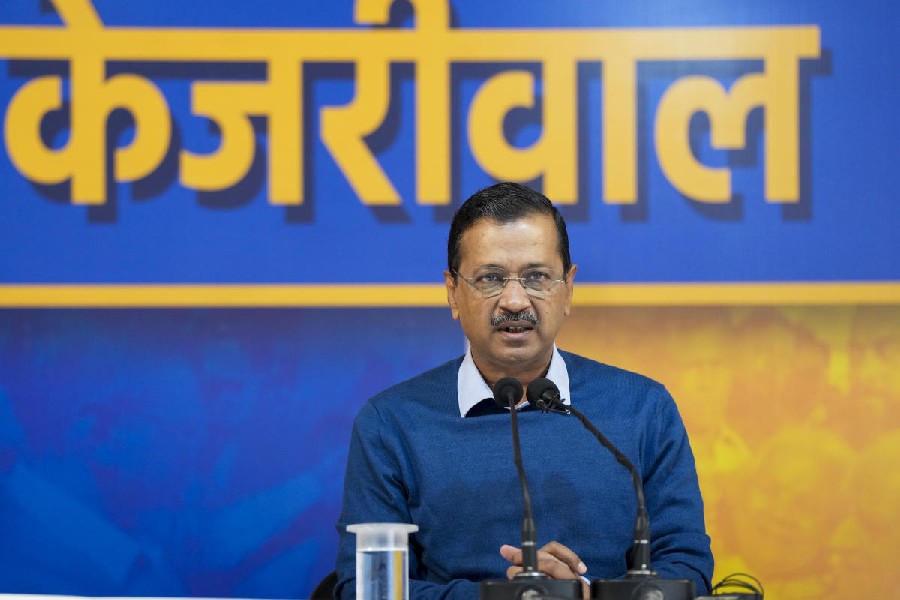Converting waste sheaths of areca palm trees to dinner plates and other wares has become a ray of hope for women of two blocks in Assam's Kamrup Rural district, as they engage in entrepreneurial ventures to become economically independent.
The biodegradable disposable dinnerware made of waste sheaths also addresses the concern of pollution caused by materials like styrofoam and plastic.
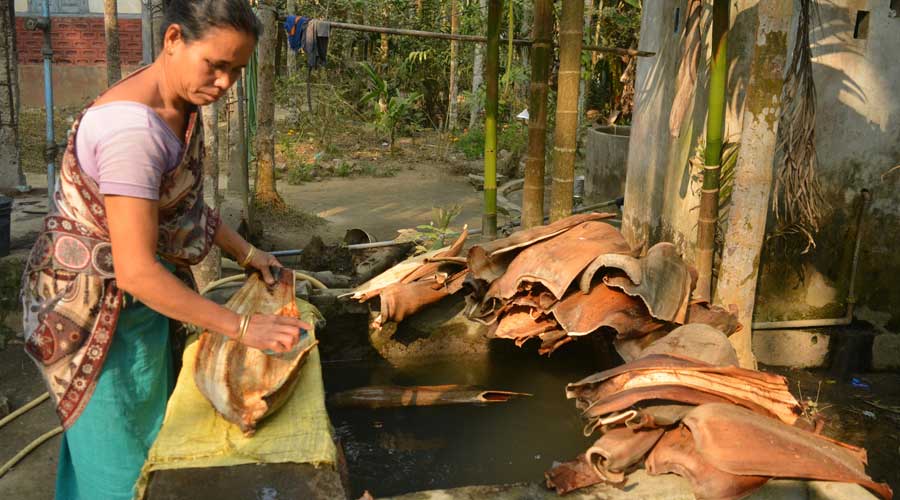
A woman collects waste sheaths from a plantation for delivery to the entrepreneurs.
Villages under Chaygaon and Bangaon blocks of the district, 40 km from the state capital, are dotted with areca palm trees that were earlier considered to be a source only for Tamul' (betel nut), while its sheath, a waste material, was at times used to make temporary boundary walls of homes.
We never thought the waste sheaths could be used to manufacture products that have a demand not only in the state, but across the country and help us earn a living, 35-year-old Sonoti Rabha told PTI.
An initiative named Project Pragati' was introduced in the two blocks about four years ago by an NGO Dhriiti-The Courage Within' by engaging rural women through mobilisation and training in producing plates from waste sheaths of areca palm trees, said Anirban Gupta, co-founder of the organisation.
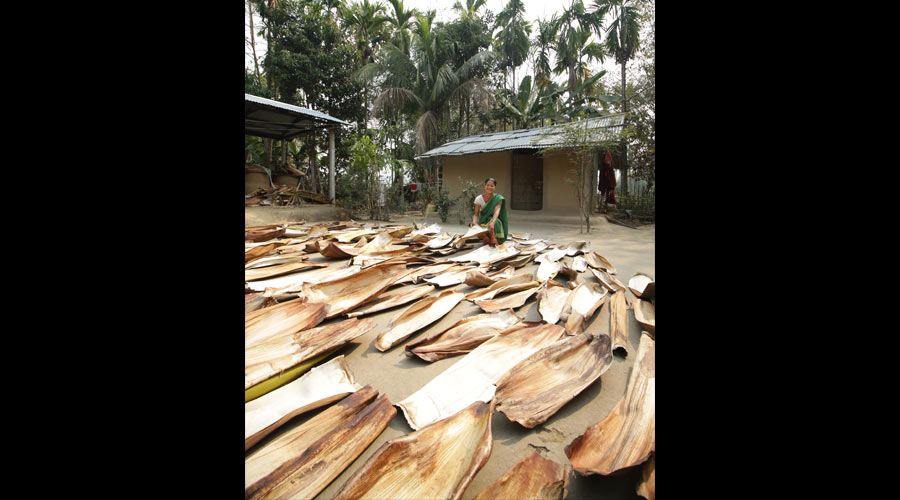
A woman dries waste sheaths for delivery to the entrepreneurs.
When the idea was first introduced among people in the mobilisation camps, no one could believe that a waste material can be converted into a product that has a profitable market not only in India but across the world, he said.
In the last four years, the project has helped build an arecanut manufacturing cluster with 30 women entrepreneurs setting up home-based producing units, and 350 others engaged as raw material collectors and machine operators.
The project is primarily aimed at enhancing the income of rural women through value addition to locally and abundantly available raw materials. For most of these women, it is their first opportunity to own a business and earn independent incomes, he said.
Alpana Das, new to entrepreneuring, said they earn Rs 200-250 daily by making the dinner plates and it has enhanced their financial status.
Banks do not hesitate to give loans now, a smiling Das said.
The dinnerware made of areca palm sheaths has better dimensional stability, is hygienic, biodegradable, and microwave safe, and also addresses the issue of pollution caused by styrofoam containers and plastic dishes, Gupta pointed out.
The making of an eco-friendly disposable plate goes through the process of leaf gathering, drying, sorting, cleaning, production, packaging, and above all marketing, making the whole activity a business for many micro and nano-woman entrepreneurs.
The production of plates is not a simple task. It is time-consuming. From gathering raw materials to packing, it requires a lot of effort and time. We leave the raw sheets out in the sun to dry, but in case of sudden rain we have to instantly gather every sheath or else it will rot, Dipjyoti Rabha, another entrepreneur, said.
The areca palm sheaths, the basic raw material, have no monetary value, but we procure those for Re 1 each to help generate income for the local community , said Pratima Rabha said.
Market linkage of the products has been established with a company called Tamul Plates Marketing Private Ltd (TPMPL).
The products are picked up from the doorsteps of the women entrepreneurs once a month, while payments are made within 20 days of procurement.
We are mainly engaged in piggery for income generation, but rearing an animal takes about 8-10 months. The areca palm waste business gives us monthly income, entrepreneur Baijayanti Rabha said.
They have now organised themselves under two Self Help Groups (SHGs), and are scaling up operations by leasing arecanut palm plantations for the sheaths as well as for trading of the fruits.
Monica Banerjee, head of Inter Globe Foundation, which funded the first two phases of the project, said nurturing the strengths and leadership abilities of the women, and promoting natural resources-based small enterprises among them was a satisfying experience for all stakeholders.
Chaygaon MLA Rekibuddin Ahmed hoped that these women will motivate many more in rural areas to take up entrepreneurship.
I will direct the block development officers to extend all possible help to them, the MLA said.
PTI

